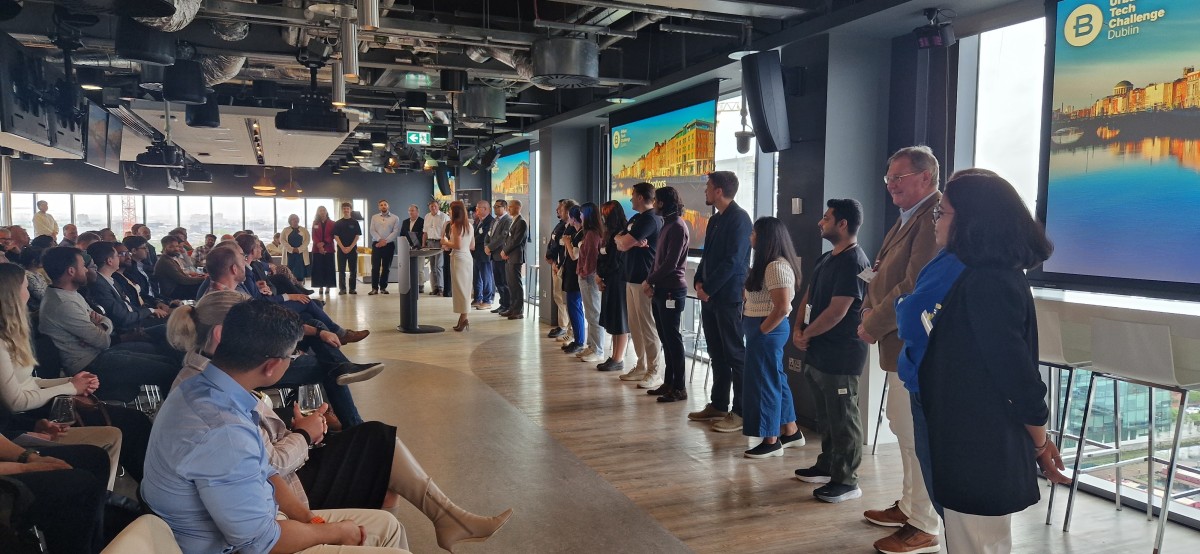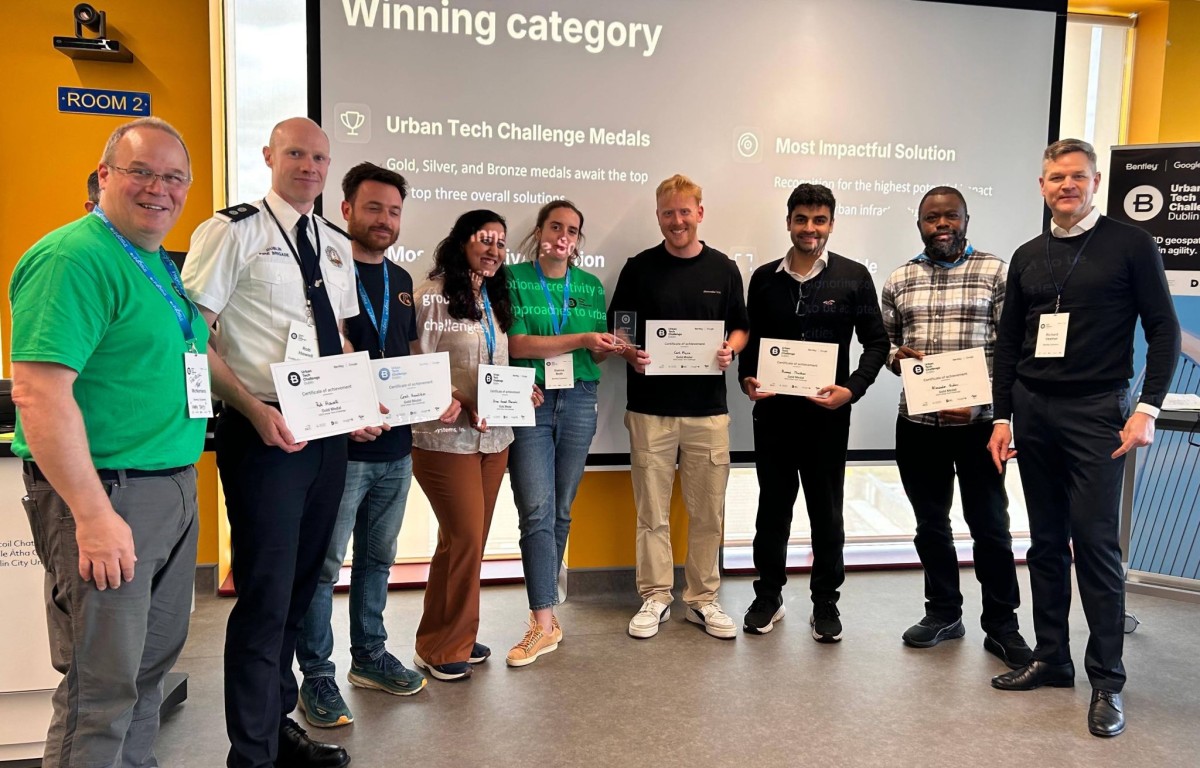Launched as part of Dublin Tech Week on May 26th at Google’s EU HQ, the Dublin Urban Tech Challenge was a collaborative two-day event supported by Bentley Digital Cities, Dublin City University, Dublin City Council and Google bringing together skills and expertise from public and private sector organisations and academia to stimulate innovation, support data-driven decision-making and explore solutions to address key urban priorities.

Expert multidisciplinary professional teams with a diverse range of knowledge came together for this challenge to focus their problem-solving skills and to create scalable 3D geospatial solutions for key urban priorities.
Challenge priority themes included:
Building and infrastructure design optimisation: Design, planning, and 3D modelling by leveraging geospatial and geotechnical insights.
Flood forecasting and management: Resilience planning and emergency preparedness, as well as impact analysis and simulation, visualising risk and climate adaptation.
Urban mobility optimisation: Leverage urban mobility data for traffic and road system construction planning, as well as impact analysis and/or traffic management and safety.
The goal of the Urban Tech Challenge was to demonstrate an open-platform approach integrated with Google’s advanced data capabilities and how this could help address these priorities for cities of any size. Participants were invited to enhance the experience by also bringing their own data to experiment in this fast-paced exploratory environment.
Bentley Systems, Dublin City University, Smart Dublin, and Google provided the platform and resources for teams to innovate and develop solutions.
The Urban Tech Challenger teams focused their solutions in areas such as building and infrastructure, design optimisation, flood forecasting and management, and urban mobility optimisation.

On the final day, Team Hackdraft was announced as the successful challenger, and they took the gold medal for their innovative fire safety solution. The team utilised open data, Cesium technology, and Google 3D Tiles to enhance the Dublin Fire Brigade’s digital twin, making it more efficient. Second and third place teams focused on urban planning, flooding, and mobility solutions.
Other projects included a vacant sites assessment tool and a collaboration tool enabling improved engagement among the public, developers, planners and government to increase planning efficiency. The top three teams will present their work at Bentley’s Year in Infrastructure Global Conference in Amsterdam later this year.